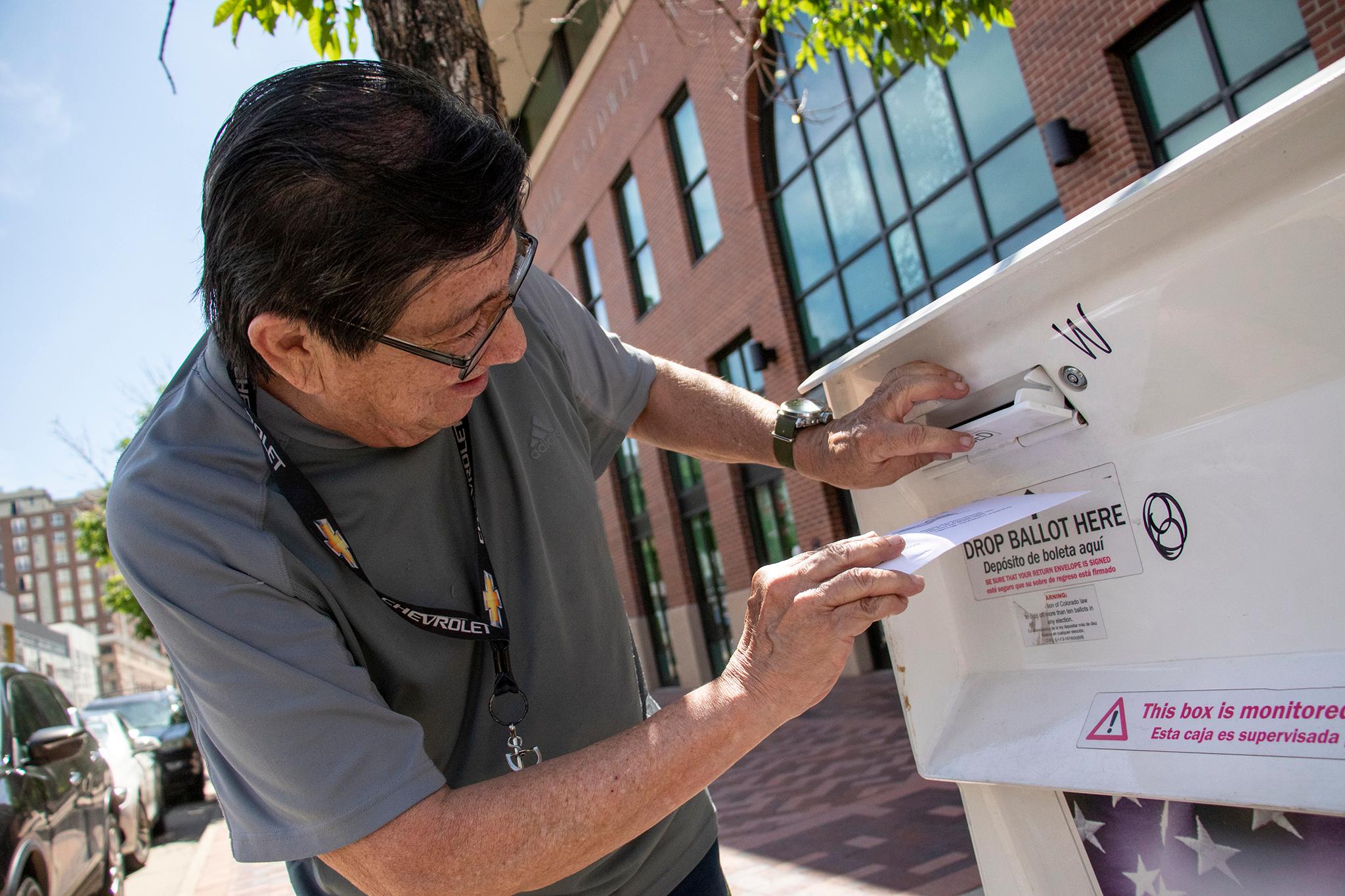
A man in Denver’s Park Hill neighborhood incorrectly telling people dropping off ballots at a recreation center that they need a stamp before the ballot is accepted.
Maskless protesters in Fort Collins deliberately intimidating voters worried about COVID-19 and scaring them away from a ballot drop.
Gun-toting men in “tactical” gear in another Denver neighborhood demanding IDs from voters at a ballot drop box.
These stories all have one thing in common: They’re not true.
“There have been several things on social media and it’s turned out that there is no evidence,” said Secretary of State Jena Griswold on Thursday. “Voter intimidation is always illegal … And we will act very quickly to make sure voters have their voices heard and so far everything is going very well.”
The two Denver stories started on social media sites, NextDoor and Facebook.
“There are people standing at ballot boxes telling people they have to have a stamp. They are blocking the box so people can’t drop off their ballot. Apparently they are focusing on people of color,” one post read. “They are also asking the people who they voted for.”
“There were two men in tactical gear and wearing masks (NO Visible Weapons) standing near the ballot dropoff box,” the other post read. “One of them asked me for my ID. I told him no, asked him to step aside, and he did. No confrontation, or other harassment.”
That poster said they had contacted authorities about the incident.
Denver elections officials viewed surveillance camera footage of both drop boxes and couldn’t find any indication that either event occurred.
“I pulled the video that day to watch our box. I can assure you the one thing we saw was that people were steadily going by and taking selfies in front of the box,” said Paul Lopez, Denver’s Clerk and Recorder.
In Fort Collins, there was a recent protest against the mask order, but it had nothing to do with trying to suppress the vote, according to the elections clerk, who also acknowledged it may have been misconstrued as voter intimidation.
Kevin Klein, director of the state’s Division of Homeland Security and Emergency Management, said he has a group of people monitoring social media at all times and, when appropriate, he shares information with law enforcement.
That includes federal Homeland Security officials, if the threats are foreign.
“There is a lot of fake stuff out there,” Klein said. “That stuff has been around for a long time and it’s nothing new. If there is something we can see, a rumor … we will get information out on it. Honestly, social media is a cesspool.”
Klein confirmed he’s working on some investigations into bad IP addresses, but couldn’t elaborate further on what those investigations were.
So far, Coloradans are voting in force.
As of Thursday, more than 300,000 people -- roughly 139,000 Democrats, 57,000 Republicans and 100,000 unaffiliated voters -- had already turned in ballots. This is up from only 12,000 who had cast ballots at this time in 2016.
“Voting is the right upon which all other rights are dependent,” Gov. Jared Polis said on Thursday. “People are enthusiastic. They have the right to be enthusiastic about their candidates. They have the right to cast their vote and we all respect the outcome.”
State Rep. Leslie Herod, who represents Denver, said even though voting is relatively easy in Colorado compared to other states, suppression still exists.
“While we may not have any confirmed cases on the record yet, or video, I would say be aware, be vigilant,” Herod said. “If you see something, take a picture and report it … This is a different year, this is a different election cycle … The most important thing is your voice is heard and your vote is cast.”









